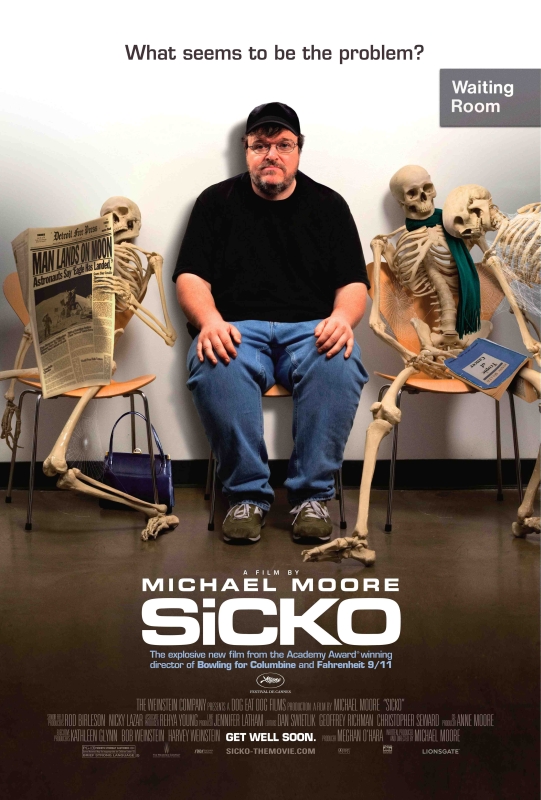
I just finished watching the film "Why We Fight," a documentary by Eugene Jarecki. I wasn't sure what to expect going into it, as I noticed that it had interviews of both John McCain and Chalmers Johnson, and followed the story of a man joining the army, and of a veteran who now forbids her children to join the armed forces. All of this made for a very balanced and nonpartisan look at what makes our nation go to war.
The backbone of this film (and many other looks at the modern military) lies in Dwight D. Eisenhower's farewell address, in which he warns the American people of the rising "military-industrial complex." For those of you who are not familiar with the phrase, it is the loose organization between Congress, the Pentagon, and defense contractors. This association is the recipe for the expansion of the military: Congressmen want jobs (from defense contractors) in their home districts to help their own careers, the Pentagon wants more strength and freedom (in the form of new equipment, more bases, and looser rules), and the defense contractors want more money (in the form of government contracts to make weapons of war). The movie investigates the military-industrial complex, and how it affects both the decision-making process in Washington, the media's portrayal of events, and the public's opinions.
Most importantly, Jarecki warns against the United States taking the same path as Rome, changing from a small republic, into an empire, into a superpower and oppressor. To me, this is a nonpartisan issue, one that all Americans can rally around. We do not want the government to be able to take advantage of our patriotism, our love of freedom or our families, and scare us into supporting a war against a non-threat such as Iraq. The documentary also follows the path of Wilton Sketzer, a man whose son died in the World Trade Center, who goes from hating the terrorists and supporting the war in Iraq to realizing that the government lied to support the invasion. I hope that, like Sketzer, people who watch this film will realize that obeying the government isn't the same thing as loving your country. We have to think independently about all government decisions, or else there will be another Vietnam or Iraq, both of which the government blatantly lied the public into supporting.
Wednesday, August 6, 2008
"Why We Fight" Movie Review
Posted by Sam at 9:38 PM 0 comments
Labels: documentary, John McCain, review
Monday, June 30, 2008
"Blood and Oil" Review
 Somewhat recently, I read a book called "Blood and Oil: The Dangers and Consequences of America's Growing Dependency on Imported Petroleum" by Michael T. Klare. To be honest, it was a couple months ago and I have really procrastinated in writing this review. But now that it's summer and I have time on my hands, I'd like to showcase what I think is a great read.
Somewhat recently, I read a book called "Blood and Oil: The Dangers and Consequences of America's Growing Dependency on Imported Petroleum" by Michael T. Klare. To be honest, it was a couple months ago and I have really procrastinated in writing this review. But now that it's summer and I have time on my hands, I'd like to showcase what I think is a great read.
As you may be able to infer from the title, the book is about oil. And about blood, meaning the wars fought over oil. The reason for this is that Klare wrote a book, "Resource Wars" (which i have yet to read) which argued that wars are fought mainly over resources. But Klare later realized that oil was a much larger factor than any other resource. But why is this? Why does oil create more conflict than any other resource, whether it is gold or diamonds, food or water, stone or wood?
Posted by Sam at 8:23 PM 34 comments
Labels: book recommendation, Klare, review
Friday, March 21, 2008
"Sicko" Review
 So the other night, I watched "Sicko," the documentary about healthcare by Michael Moore. I was expecting a great documentary, due to the popularity of Moore and the number of awards he has won. And I got even more than I expected.
So the other night, I watched "Sicko," the documentary about healthcare by Michael Moore. I was expecting a great documentary, due to the popularity of Moore and the number of awards he has won. And I got even more than I expected.
Posted by Sam at 11:28 PM 2 comments
Labels: health care, Michael Moore, review, Sicko




